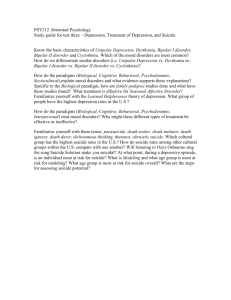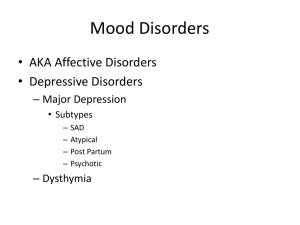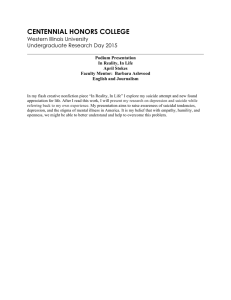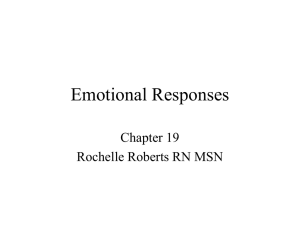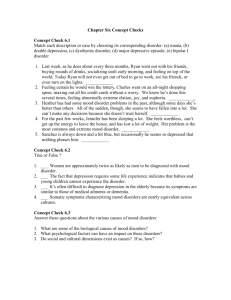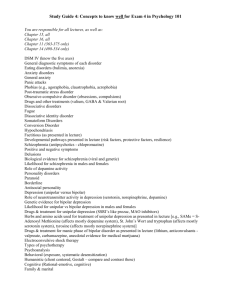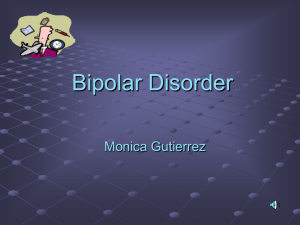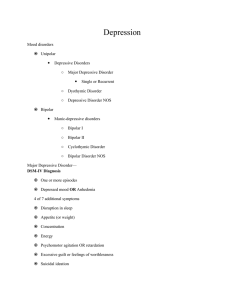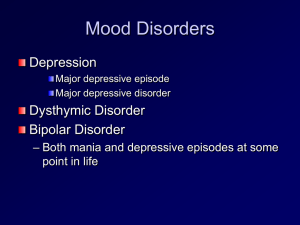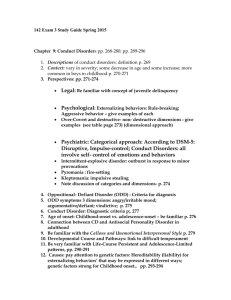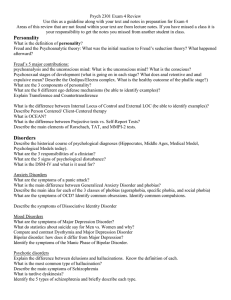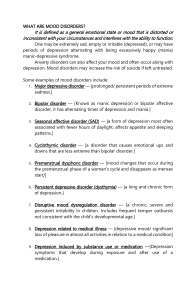M o d D
advertisement
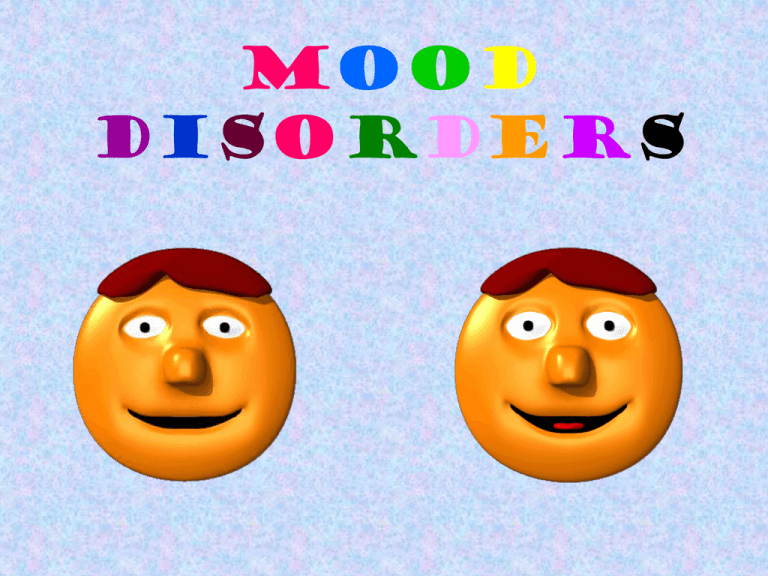
Mood Disorders Mood Disorders • Disorders characterized by severe or constant disturbances of moods and emotional extremes. Two Types: Unipolar and Bipolar Unipolar – moods are at the depressive end Bipolar – experience moods at both ends Mood disorders are generally episodic – they tend to come and go Depression • The common cold of psychological disorders It is like a warning that something is wrong. Depression Depression Major Depressive Disorder • A person, for no apparent reason, experiences two or more weeks of depressive moods. Includes feelings of worthlessness and diminished interest or pleasure in most activities – can lead to suicide More common in women than in men 21% vs. 12% Suicide Do people who suffer from major depression commit suicide? People who are extremely depressed typically do not commit suicide. In the depths of a depressive episode, people usually feel too unmotivated and apathetic to form a suicide plan and carry it out. Suicide is more likely when a depressed person begins the process of recovery and becomes more energetic. Dysthymic Disorder • Suffering from mild depression every day for at least two years. Seasonal Affective Disorder • Experience depression during the winter months. • Based not on temperature, but on amount of sunlight. • Treated with light therapy. Bipolar Disorder Formerly called manic-depression • Person alternates between the hopelessness and lethargy of depression and the overexcited state of mania Famous People with Bipolar Bipolar Brain Causes of Mood Disorders Biological Factors – genetic predisposition – neurotransmitters (serotonin and norepinephrine) – brain structure Cognitive Factors – learned helplessness – self blame – low self esteem – rumination (dwelling about problems) Interpersonal Factors – lack of social network, loss of an important relationship, stress
